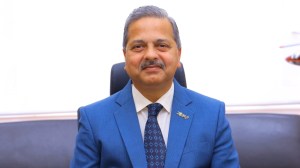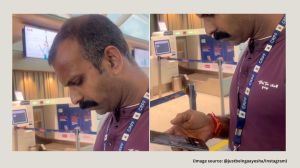Football can’t tackle problem of plenty
It’s the never-ending season.Summer used to mean a three-month break in European football. Now the hiatus is down to a few weeks. Leagu...

It’s the never-ending season.
Summer used to mean a three-month break in European football. Now the hiatus is down to a few weeks. League seasons already have resumed in France and Scotland, the German season starts on Friday and the English Premier League begins August 13.
Rich clubs like Real Madrid and Manchester United spent July on lucrative pre-season tours of Asia. Chelsea and AC Milan played friendlies in the US.
The saturation has been blamed for a decline in television ratings and led to concerns about player fatigue, burnout and injuries. In Asia, fans complained about lackluster matches, high ticket prices and crass commercialism.
‘‘There’s a bit more football than there used to be’’, said Stefan Szymanski, a professor of sports economics at Tanaka Business School in London. ‘‘But there is a lot more meaningless football being played.’’
‘‘Clubs used to prepare for the season in the twilight. You didn’T know it was going on’’, said John Williams, director for the Centre for the Sociology of Sport at the University of Leicester. ‘‘Now with the proliferation of TV coverage — even preseason coverage — there is a sense that football never stops.’’
Next year’s World Cup in Germany, which runs from June 9 to July 9, has added to the squeeze. Some domestic leagues are starting a bit earlier and ending earlier to give players four weeks’ rest — instead of three.
The idea came from England coach Sven-Goran Eriksson, who blamed player fatigue for his club’s quarterfinal exits at the 2002 World Cup and Euro 2004.
On tours of Asia, players from Real Madrid, Manchester United, Barcelona and Bayern Munich griped about the travel and meaningless games. ‘‘We have come to win the hearts of the Japanese, but it’s not easy with so many journeys, flights, buses and promotional acts’’, Real’s Ronaldo said.
Ronaldo and Zinedine Zidane moaned about the Asian roadshow, reportedly worth about $25 million to the club. Coach Vanderlei Luxemburgo had little sympathy for the two, who both have annual incomes of about $20 million.
‘‘This is football’’, he said. ‘‘A club like Real Madrid must have a commercial side like this to earn money and exchange experiences with other countries.’’
How many games can players sustain without risking injury?
‘‘Nobody really knows what is the optimum or maximum games per year’’, said Professor Jiri Dvorak, FIFA’s Chief Medical Officer. ‘‘I’d say about 50 to 60 games per year was OK, reasonable’’, he said. ‘‘But 70 to 80 is really the upper limit. I think it would be very difficult to increase the number of games much more.’’
‘‘It’s pretty clear that over the past four or five years there have been more and more matches for the top players, for the top clubs’’, UEFA spokesman Rob Faulkner said. ‘‘There’s no doubt they are reaching a limit now, and we’re sensitive to that.’’
With more money involved, players are being watched more carefully by coaches — and clubs more carefully by sponsors. ‘‘It’s not that’s it’s so terribly difficult to play two football games a week, the problem is that it’s very difficult to be at the top of your game every single time you play’’, Szymanski said.
|
Football Frenzy
|
||||
|
• Deportivo la Coruna had the shortest summer of all. The Spanish club ended the league season on May 29, and was playing again 33 days later — July 2 — in the Intertoto Cup. |
||||


- 01
- 02
- 03
- 04
- 05





























